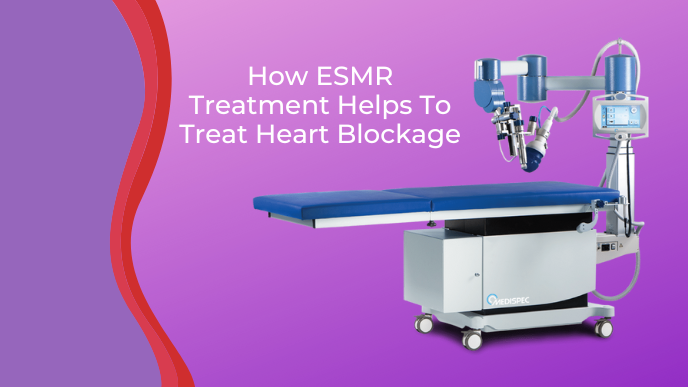How ESMR Treatment Helps To Treat Heart Blockage
- Get link
- X
- Other Apps

ESMR stands for Extracorporeal Shockwave Myocardial Revascularization. Sometimes, it is also referred to as Noninvasive Cardiac Angiogenesis therapy.
ESMR treatment is a new noninvasive approach of Extracorporeal Shockwave technology for revascularization, i.e., to improve the blood supply to heart muscles. Ischemic myocardial areas aren’t accessible by conventional revascularization therapies like Bypass surgery or Balloon Angioplasty. Stents could be treated with ESMR therapy to relieve symptoms resulting from myocardial ischemia.
Who Can Opt For ESMR?
ESMR treatment can be recommended for anyone who fits into one or multiple of these criteria:
- Chronic chest pain even after Bypass surgery or Angioplasty.
- Having 70 % -100 % blockages in angiogram
- Patients who are not willing to surgical procedures
- Chronic Renal disease with heart attack problem
- Reblocks after Bypass surgery or Angioplasty
- High-risk cases that are medically unfit for Bypass surgery
- Patients’ coronary anatomy is not suitable for Bypass surgery
- Inability to get an Angioplasty because the target is inaccessible
ESMR Treatment
The treatment uses a shock wave generator designed to address the unique anatomical requirements of the body. An ultrasound imaging system is used to locate the target area for the treatment and map the ischemic zone’s exact position. Shock waves are then delivered to that area under E.C.G.
The therapeutic effect of shock waves is because of the mechanical pressure and acoustic tension these waves exert on the cardiac tissue. In addition, the delivery of low-intensity Shock waves causes sheer stress on the vessel wall. This stimulates angiogenesis-related growth factors-( VEGF, eNOS, and PCNA), initiating the angiogenesis process.
The whole treatment takes 20-30 minutes. During each treatment, shockwaves are delivered to the border of the ischemic area.
Benefits of ESMR Treatment
- The patient can walk more distance without chest pain
- The patient would have fewer or no Angina
- Episodes of Angina would be less painful
- Patients’ need for anti-anginal medications can be reduced
- The patient can return to work and can participate in their active lifestyle once again
- The patient would be more energetic and confident.
Patients with advanced cases of CAD frequently have recurrent Angina. Surgical and interventional options for these cases usually have been exhausted or will result in only partial success. The ESMR treatment offers new hope for these patients that complements existing treatment procedures.
We have an experienced team of experts specializing in cardiovascular complications. For any type of cardiovascular complications in Pune, Poona Preventive Cardiology Centre has got you covered. So contact us if you want to improve your cardiac function and health.
- Get link
- X
- Other Apps


Comments
Post a Comment